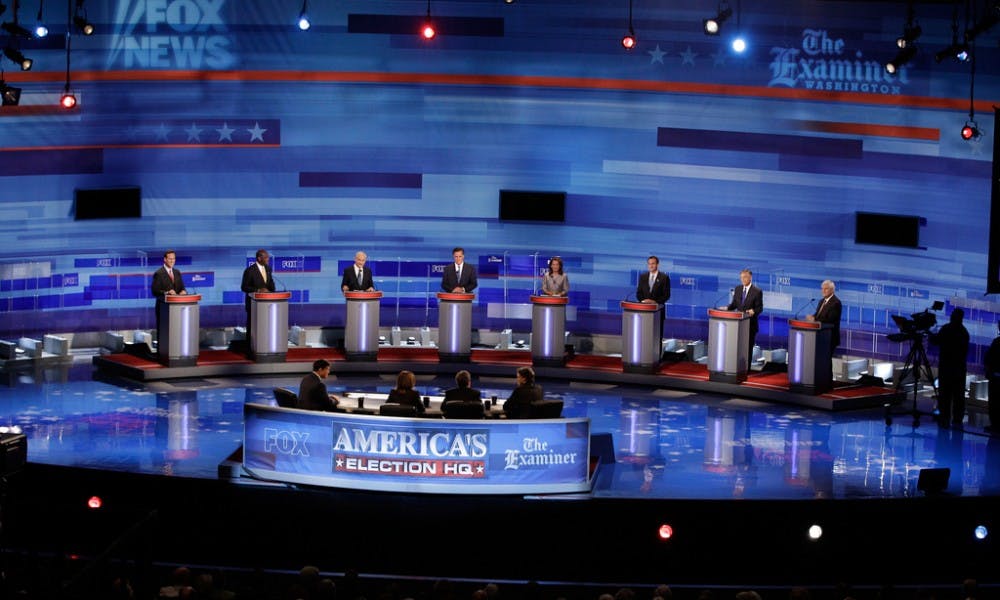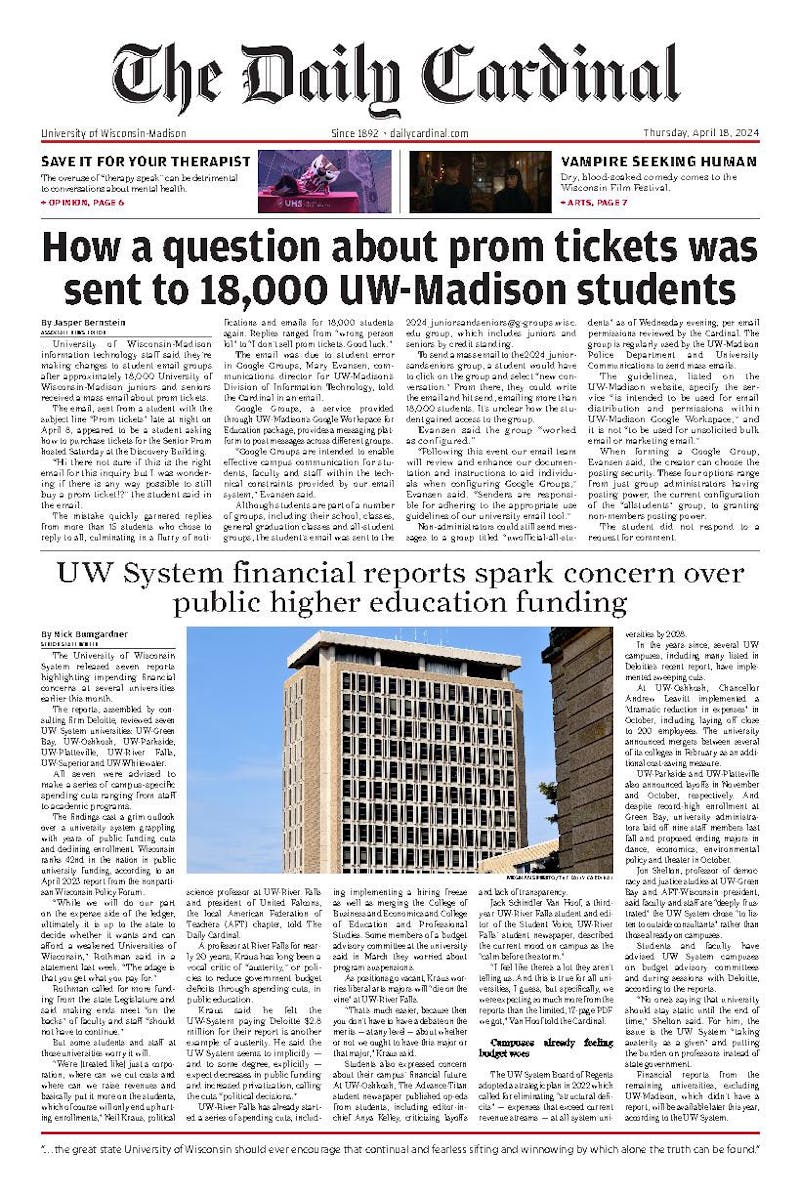As the the presidential election draws closer, many of us await the future with great anticipation. All of us seek a better future regardless of how different our anticipated paths may be, and thus the presidential election holds the attention of many as it plays a determining role in the policies that affect our lives. There are many ways to access information on politics these days to help determine which candidate to vote for, and it has never before been so easy to acquire such knowledge with the power of the internet, social media, television and the radio. Not surprisingly, as our network of information has grown, so has the range of the knowledge we are presented with—from petty personal blogs and comments to extensive records of the candidates’ lives. This trend begs several questions: What topics should we focus on, and how well should we know them?
Just like how we start studying for the exam by selecting which sets of topics will be covered from the lessons, studying politics also requires diligence and selecting the most relevant information. Because we have so many sources of information these days presented in many different ways, it has become important for us to develop skills to select which topics are the most important. But it is also difficult to develop a standard to determine what to remember and what to forget, as everyone has different backgrounds and interests they wish to focus on.
Even with these difficulties, I still believe it is a good idea to at least talk about how we should handle this mass of information regarding the political process, as it helps to work towards a general solution.
How much should we know, whether personal or political? Until recently I have believed that personal stories and issues may not be the most vital tool in determining the viability of certain candidates in running the country. But after learning about the recent presidential scandal in South Korea, I realized that sometimes the personal stories of leaders can have an impact on their ability to govern.
According to a recent CNBC report Oct. 27, President Park revealed in a televised apology that she received help on state affairs from an old friend and informal advisor named Choi Soon-sil. It is still a developing story, but Ms. Choi is mainly accused of having access to classified material related to national security and conomic policies, and of interfering in key governmental affairs by establishing two nonprofit foundations using funds from corporate donations.
Many South Korean citizens are petitioning for impeachment, criticizing the president’s lack of consideration of classified information, and it has caused for a growing distrust of the government. Not only that, it is reported that the confusion and shock caused by “Choi-gate” could delay the National Assembly’s passage of the 2017 budget and have an impact on the economic progress of the nation.
I am aware that not all countries share similar stories of how the personal histories and lives of leaders can impact the welfare of the nation, but I believe it is quite important to know as many details about candidates as possible. However, we should narrow down what information is the most important and pertinent. All personal and public histories of the candidates should be related to the welfare of the nation more than anything else.
We should not be distracted by unnecessarily petty personal stories, but focus on the things that could determine the qualities of our lives. You might need to learn about the personal histories of the candidates who you will cast your vote for as long as they could be related to governmental policies. The Clinton email problem? The Trump tax scandal or sexual misconduct from the past? The first could impact how the new government would handle classified information and the latter could foresee how the future cabinet would handle policies related to economic inequality or women. Make yourself as aware as possible about how these issues could influence our lives.
Although government officials and candidates are often held in check by media outlets, we realize that we don’t always get all the details of everything going on in Washington. We might get some glimpse of certain things from public legislation, governmental information posts and media outlets—but not all. As important as confidentiality can be, our right to know as much as possible also needs to be protected. We need to decide for ourselves which candidate would perform best. In order to make such a determination, we also should learn as much as possible about the qualifications of these individuals.
For example, if Candidate A had been a fervent supporter of a previously controversial idea and later switched to a more moderate belief, then you should decide for yourself how to interpret this change. Was there an actual change of heart, or was it simply made to appeal to the general populace? We often see changes from one position to another as a sign of a lack of credibility of the candidate on the issue—however, should we see it only in that way?
We are looking for the candidate who can do the job and has worked hard to serve all Americans. As long as our leadership is taking us in the right direction, very little else matters. That’s why we need to know as much as possible about politics—because if we only look at one side of the story, we may miss out on a leader who can help the country realize its full potential.
As we all know, the upcoming presidential election is vital to continuing the legacy of our nation. I believe it’s equally significant for us to have a moment to discover how to make a good political choice. When all is said and done, we should try our very best to try to pick a candidate who will serve our personal and communal interests. In order to do so, we need to refine the skills we need to learn more deeply and effectively about the qualifications of the candidates—whether they’re really a good fit to run our great country. So as we now benefit from an abundance of information, let’s make good use of it to build towards an ideal future. Let’s not let the massive amount of information available to us cloud our will to make this country a better place to live.
Hae Rin is a junior majoring in history. What do you think is most important to conider when selecting a political candidate? What news sources do you rely on for the news you care the most about? Please send all comments, questions and concerns to opinion@dailycardinal.com.






